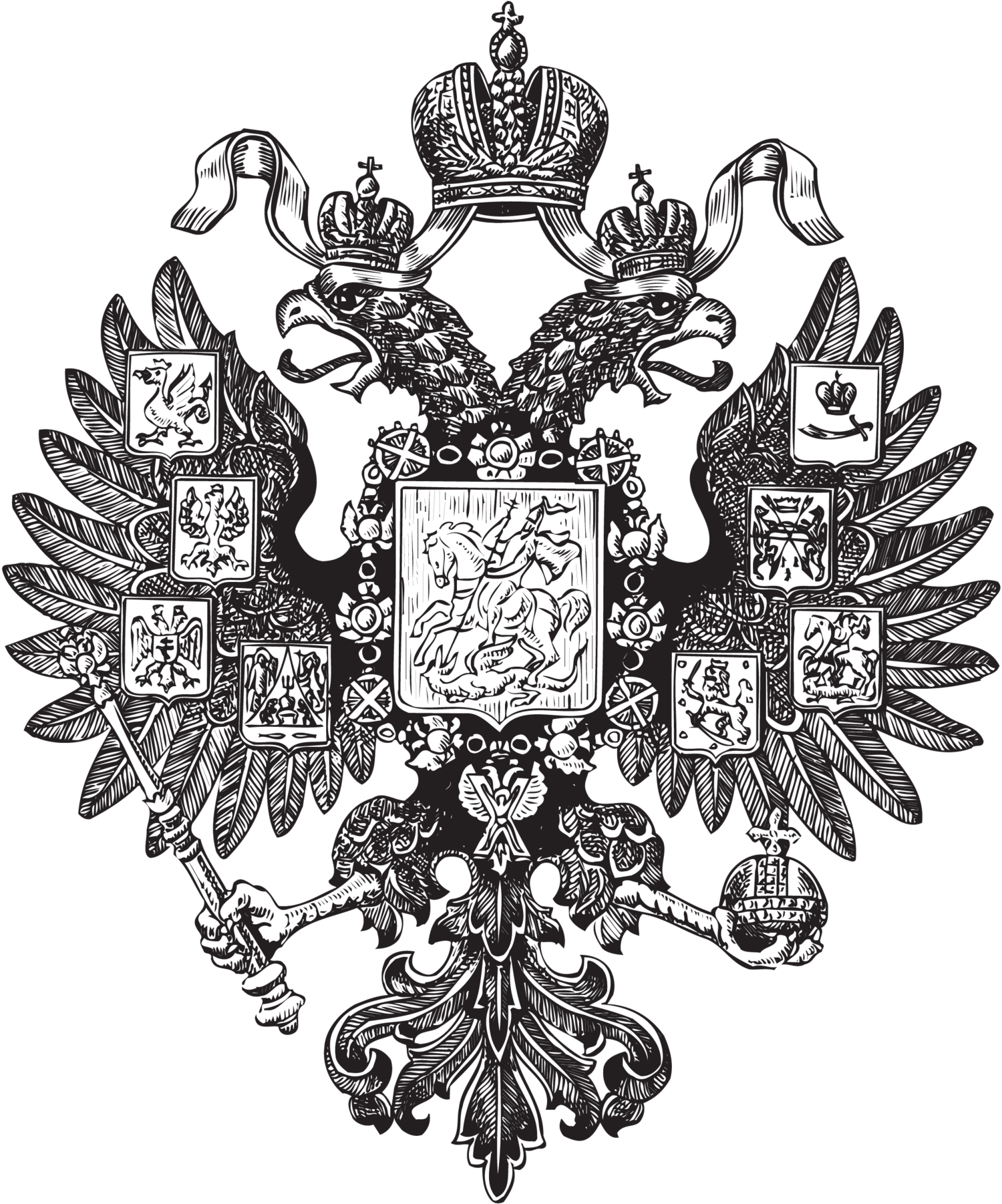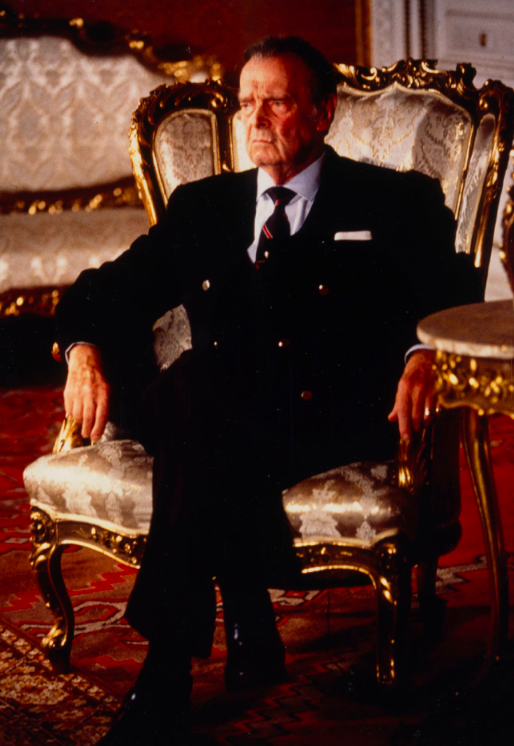Grand Duke Vladimir Kirillovich (1917-92) c. 1991, Colour photograph | Collection of H.M. Queen Elizabeth II | Royal Collection Trust | RCIN 2927299
On the 21st of April, 1992, Grand Duke Vladimir Kirillovich of Russia died in Miami, Florida, USA, during a press conference which was to precede a speech the following day to be given to a large business group under the auspices of the Northern Trust Bank of Florida. Grand Duke Vladimir had been asked to come speak to the group due to the recent and surprising developments in the former Soviet Union.
On December 25, 1991, the flag of the USSR was lowered over the Kremlin for a final time. Representatives from soon-to-be former Soviet republics (Armenia, Azerbaijan, Belarus, Georgia, Kazakhstan, Kyrgyzstan, Moldova, Tajikistan Turkmenistan, Ukraine, and Uzbekistan) stood together and announced they would declare a Commonwealth of Independent States. The three Baltic states (Latvia, Lithuania and Estonia) had already declared their independence from the USSR. Gorbachev resigned on December 25.
This profound change was one the Northern Trust Bank hoped to address in their event. The Grand Duke and his wife had just completed their first visit to Russia since the Grand Duke had fled in 1919, and the Grand Duchess had left in 1931. The Grand Duke was only one of the many cousins who were active in discussing the future possibilities in the formerly communist east. The former kings of Romania, and Bulgaria, as well as the Crown Prince of the former Yugoslavia were active at this time, sharing their experiences and visions for the future.
The son of a British Royal Princess and a Russian Grand Duke who had survived the revolution, the Grand Duke was eminently qualified to speak on the topics of change, reform, and of constitutional monarchy.
The day after his death, the Grand Duke’s speech was read on his behalf by Prince Nicolas Ouroussoff who had accompanied him to Miami:
“…Like many other Russians raised in exile abroad, I have spent most of my life firm in the belief that the best way to help Russia and the Russian people was by opposing communism. This was also the attitude of my late father, who felt that no real political, economic or spiritual progress could take place in Russia as long it was under the Marxist yoke.
In the last few months, the communist system that held my country in its grip for 74 tragic years has at last, thank God, been smashed to pieces by the Russian people. And now, for the first time, Russians living in exile like myself can begin to speak realistically about participating with our compatriots in Russia in the effort to rebuild our country…My wife, my daughter, my grandson and I are Russians, and as Russians, we wish to participate and contribute in any way possible, whether official or unofficial, public or private, to the progress of our country.
We all thank God that our country has been delivered from communism. We are also most grateful that this long and involuntary exile is finally ending…The problems that Russia faces are so enormous that there is room for all Russians, whether in Russia or abroad, to pitch in and lend a hand, each in his own way and each according to his own possibilities. This of course includes us…
Given the continuing fragmentation of what used to be the Soviet Union, it is my belief that a monarchy offers certain definite advantages which no other form of government can provide. In the first place, a democratic and constitutional monarchy can play an enormous role as a stabilizing factor and as a focus for unity within a federal system. In the present period of turbulence and chaos, one cannot overestimate the advantages to the nation of a monarchy, which, as an institution, is totally removed from party politics and whose position remains unaffected by the failures of political leaders. I envision the monarchy as an institution in which one can have absolute trust and whose impartiality and neutrality allow the monarch to serve as a genuine arbiter within a federation or commonwealth. The example that immediately comes to mind is that of my mother’s country, Great Britain.
Before the creation of the British Commonwealth, the Crown served as the key link and really the last link of an Empire. With the creation of the British Commonwealth, Her Majesty the Queen, as Head of the Commonwealth, has been the one symbol linking so many countries, both monarchies and republics, all over the globe…It seems to me that the peoples of Russia would understand and accept such a political structure. A monarchy in Russia, however, could do more than provide a focus for national or commonwealth unity. It would also provide a symbol of continuity, something that would allow the people to identify with their past and serve as a constant reminder of their history, their patrimony and their roots. For a nation that was nearly robbed of its history and now in many ways is without moorings, this is of extreme importance.
I see the role of a Russian monarch as a catalyst for federation, within the framework of a democratic monarchy of which he would be the first servant – a monarch not tied to any ideology and who expresses himself publicly on issues from a strictly non-political point of view. In this sense, a monarchy can serve the people as a democratic bulwark against dictatorship. In addition, a monarchy as an institution can serve very effectively as the focus for the loyalty of the armed forces. Armed forces which are loyal to the symbol of the Crown rather than to the partisan political leaders or parties provide a further protection from military interference in the civil affairs of government, thus strengthening democracy.
All these questions must, as I said before, be decided by the Russian people at the appropriate time and under the appropriate circumstances. It is difficult to predict what the ultimate decision might be.”
Eternal memory!


